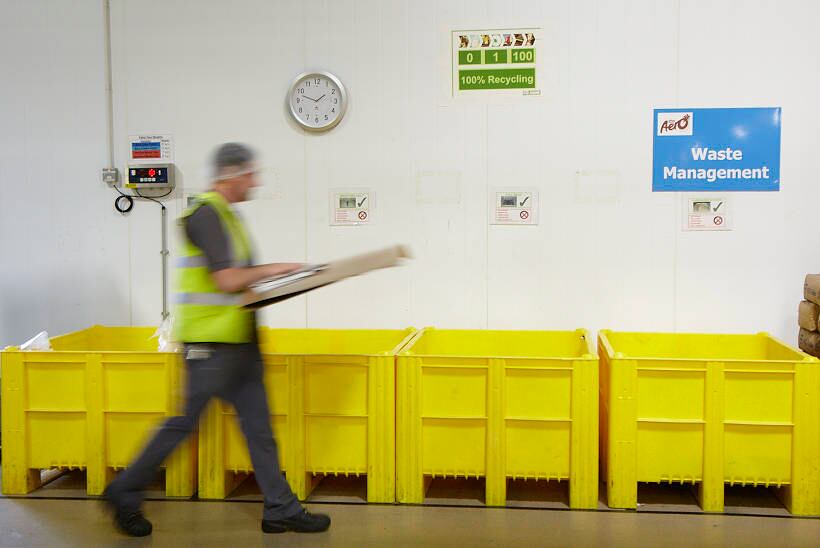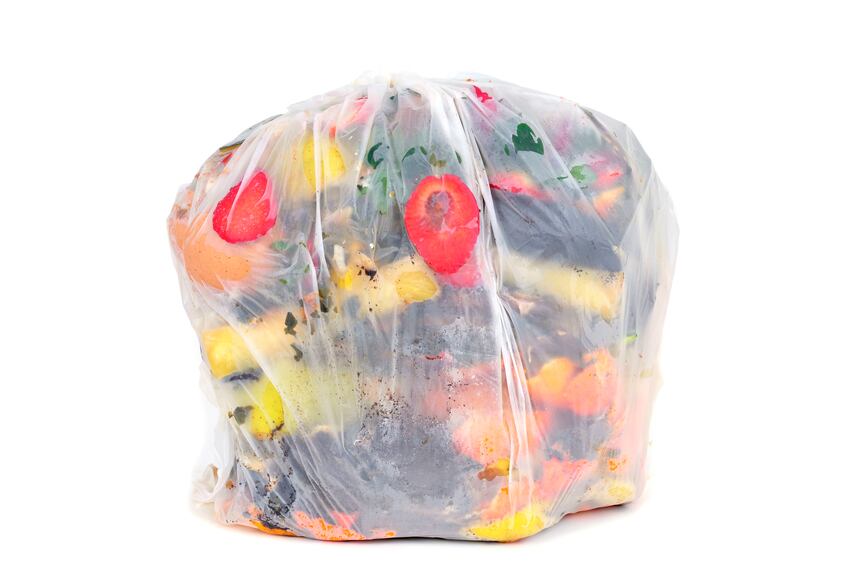The UK is in the midst of food waste crisis, according to the government’s food surplus and waste champion Ben Elliot. He hosted a symposium on food waste, called ‘Step up to the Plate’, at London’s Victoria and Albert Museum on Monday (May 13), where more than 300 supermarkets, food suppliers, chefs and social media influencers pledged to significantly cut food waste.
Businesses including Nestlé, Tesco, Sainsbury’s, and Waitrose signed the pledge to take tough action on food waste – including halving food waste by 2030, in line with UN Sustainable Development Goal 12.3, and adopting the WRAP and IGD Food Waste Reduction Roadmap to have half of all 250 of the of the UK’s largest food businesses measuring, reporting and acting on food waste by 2019.
“The pledge is a very good step in the right direction,” Elliot told BBC Radio 4’s Today programme. But he hinted the voluntary commitment may become mandatory as the results were analysed.
“In November we are having a national food waste week. If organisations of which 30 are going to be with us at the Step Up to the plate conference at the V&A museum today, are not measuring and reporting properly by then we would advise government to make it mandatory.”
He added that he hoped to see things “going in the right direction” by Christmas this year. The government confirmed it was open to the possibility of making pledges mandatory.
Food waste efforts have stagnated
While food redistribution projects have increased, there has been no food waste reduction in four years, added Elliot. “Food waste has been discussed in this country for a long time and up until 2015 we were seeing some reduction. In 2007/8 we had a financial meltdown and we saw a reduction but for the last four years we haven’t seen any reduction whatsoever.
The pledge asked attendees to reduce food waste by:
- setting an ambitious target to halve food waste by 2030 in line with UN Sustainable Development Goal 12.3.adopting the WRAP and IGD Food Waste Reduction Roadmap to have half of all 250 of the UK’s largest food businesses measuring, reporting and acting on food waste by 2019.
- embracing a Food Conversation week of action in November 2019 to highlight the changes we can all make.
- using their voice and profile to empower and encourage citizens, including the younger generation.
- changing their habits as an individual to be a Food Value Champion at work and at home, buying only what they need and eating what they buy.
“It’s brilliant that redistribution to voluntary groups has doubled in the last three years but we need to do some pretty serious things now to change our behaviour.”
The boss of Britain’s largest supermarket Tesco agreed there was more to be done to tackle food waste. He warned there were “crucial” gaps in the government’s food wastes strategy, which risked being toothless unless it asked companies to publish their food waste data within the next 12 months.
“The UK is a leader in tackling food waste, and we welcome the continued focus on this issue as demonstrated through initiatives such as the Step up to the Plate pledge,” said Lewis, who is also chairman of the Champions 12.3 global sustainability group.
“However, we want this to go further. There is a huge opportunity, and indeed an imperative, to step change our efforts to reduce food waste in the UK by more closely aligning activity to the principles set out by Champions 12.3 through ‘target, measure, act’ and the introduction of public reporting of food waste.
“We welcome the UK government’s focus in this area and see an opportunity to press even further to continue to lead the world in our efforts to tackle food waste.”
The UK Food Waste Reduction Roadmap is a world first initiative aimed at encouraging businesses to take action to tackle food waste in their supply chains and increase transparency. There is more than 10 million tonnes of food wasted in the UK every year and the Roadmap sets out how the entire industry can work to deliver the United Nations Sustainable Development Goal of reducing food waste by 50% by 2030.
Food companies are publishing their food waste figures
His intervention came ahead of the announcement of Tesco’s latest food waste figures today (14 May). Tesco was the first UK supermarket to publish its food waste figures in 2013.
In 2018/19, total food waste (food safe and not safe for human consumption sent to energy recovery) for 2018/19 was 44,297 tonnes, or 0.45% of sales. This represents a 17% decrease compared to last year and an 8% decrease compared to the baseline year 2013/14, Tesco said.
Over the 12 month period, Tesco sold around 10 million tonnes of food in the UK. Of this, 0.78% - or 77,184 tonnes - remained unsold. In total 32,887 tonnes of surplus food was redistributed to charities, community groups, colleagues and animal feed – a 63% increase compared to year before.
Nestle too published its food waste figures in the UK for the first time. The food giant revealed it wasted 10,082 tonnes (representing 1.278% of total ingredients entering the group’s supply chain) in 2018. That compared to 6,193 tonnes (0.816%) in 2017 and 10,919 (1.392%) in 2016.
“There is always more that can be done and I would actively encourage all businesses to sign up and take action to reduce food waste,” Stefano Agostini, CEO for Nestlé UK & Ireland, told the symposium.
Nestlé added that it had redistributed the equivalent of more than 7 million meals to those who need them via its redistribution partnerships.
“Many organisations and individuals feel that although food waste is an issue they don’t feel they significantly contribute to it. We believe that reporting food waste data transparently and publicly can help identify priorities and enable actions,” a Nestlé spokesperson told FoodNavigator.
“We actively encourage businesses to report publicly, but recognise that mandatory reporting may be needed to provide the impetus required.”



